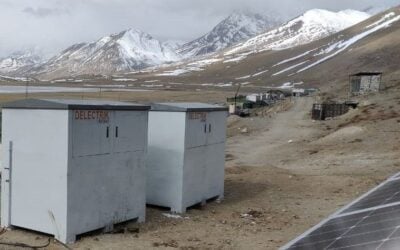Primus Power’s long duration, fade-free flow battery EnergyPod2. Source: Primus Power Corporation
California-headquartered provider of low-cost, long-duration storage systems Primus Power has launched the EnergyPod 2, the second generation of its long-duration, fade-free flow battery.
Primus is shipping systems to US and international utilities, including Puget Sound Energy in Washington State.
With a five-hour duration and 20-year life, EnergyPod 2 delivers a total cost of ownership up to 50% less than leading conventional lithium-ion battery systems, the company claims.
The solution is ideal for peak shaving for commercial and industrial (C&I) customers that typically face high electricity bills during peak periods. Long duration energy storage can shift loads from on-peak times to off-peak times, thereby significantly reducing demand charges.
Try Premium for just $1
- Full premium access for the first month at only $1
- Converts to an annual rate after 30 days unless cancelled
- Cancel anytime during the trial period
Premium Benefits
- Expert industry analysis and interviews
- Digital access to PV Tech Power journal
- Exclusive event discounts
Or get the full Premium subscription right away
Or continue reading this article for free
The California Public Utility Commission wrote in a recent staff report that “more hours of peak shifting capability would be more effective in removing generated energy from the grid at peak supply times and injecting it into the grid at peak demand times.” This exemplifies the growing need for long-duration storage solutions.
Recent reforms to California’s Self Generation Incentive Programme (SGIP) benefitted long-duration technologies that previously missed out on the incentive, through the extended US$83 million a year awarded to behind-the-meter storage.
EnergyPod 2 also features a flow battery that lasts far longer than its lithium-ion counterparts, which is essential given that multiple hours of battery power are required to bridge power outages for industrial microgrids.
Furthermore, utilities can employ long-duration batteries instead of costly and dirty fossil fuel-based peak shaving systems. Such batteries can also contribute to cheaper system upgrades and offset the variable generation of solar PV. Modular battery systems, like EnergyPod 2, offer compelling economics compared to their fossil fuel-based alternatives for the purposes of substation upgrades.





